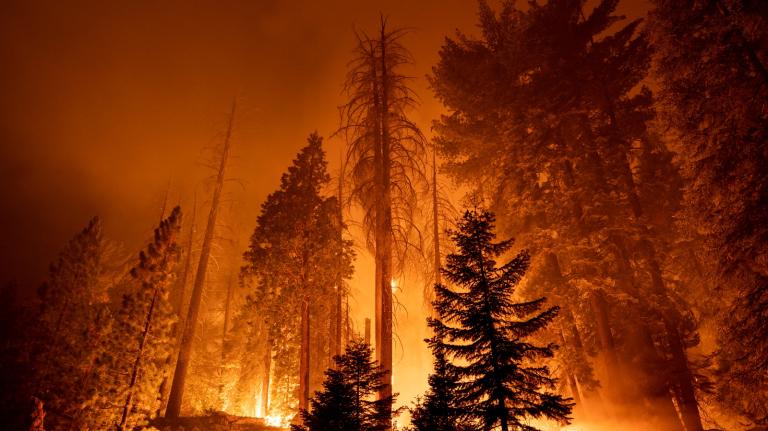Another week or two has passed, and you know what that means … links out the tuckus! (Speaking of overload.) Let’s start with three Washington Post columnists, in descending order of quality.
First up we have Warren Brown, who compliments the president on understanding the oil problem but breaks the bad news — to him and Democrats both — that some sacrifices and behavioral changes are going to have to be asked of the public, through fees and taxes:
Technology alone won’t do it, sir. You’ve got to kick some butt, even if that means you and your fellow butt-kickers get kicked out of office. It’s not about popularity polls, sir. It’s about leadership.
Next up, pigs fly out of my butt to be greeted by a cold day in hell, as I agree almost entirely with Robert Samuelson. His biofuels-bashing is right on the mark:
Although our dependence [on oil] can’t be eliminated, it can be reduced. The most obvious way is to improve the efficiency of vehicles by 30 to 50 percent over the next few decades. Americans need more hybrids and more small vehicles. Biofuels might be a complement, but if they blind us to this larger reality, they will be a step backward.
In more predictable news, serial liar, warmonger, and overall Bad Person Charles Krauthammer is full of shit. His big energy plan? Gas taxes, drilling in the Arctic Refuge, and further subsidizing nuclear power. It’s a stew of toxic ideology and magical thinking — pretty much his signature shtick.
And the final piece of Washington Postapalooza: the paper’s reporters kick Bush’s energy plan while it’s down, ripping it to shreds on both climate change and energy security grounds. It concludes with a wan, delusional flail of hope from one of the most tragi-pathetic figures of the Bush years:
Former EPA chief [Christie Todd] Whitman said that for the first time Bush may be willing to sign carbon emission caps into law. “He’s kind of setting up for a carbon-constrained economy,” she said. “I don’t know whether there will ever be an administration bill, but it may be that he’s setting himself up not to veto [someone else’s] bill.”
RealClimate has a great piece on the science behind the much-ballyhooed Stern Report. Conclusion: Stern’s science is solid, but he generally hews toward the higher estimates of risk, and argues explicitly that this is appropriate. Is it? Watch for a post on that later today.
In the midst of an issue on green stuff, trendy biz mag Business 2.0 tells us nine ways to get rich by going green. It is, as this genre of articles goes, uncommonly good. See also 8 technologies to save the world, my favorite of which, no one will be surprised to know, is No. 8, the interactive, renewable smart power grid:
California utility Pacific Gas & Electric is developing the electricity grid of the future, one that will look more like the Internet – distributed, interactive, open-source – than the dumb, one-way network of today that pushes dinosaur molecules from a carbon-spewing power plant to your home.
Via the same issue, I discovered this latest green blog: Green Wombat. Good stuff.
Mike Millikin’s week in sustainable mobility — always must-reading — is particularly good this week.
Dirty hippie extremists! Dirty hippie extremists!
It would be a good thing if every educated layperson were familiar with the distinction between gross energy — the total energy a given source produces — and net energy — the amount of energy a given source produces once the energy costs of finding, generating, and distributing it are subtracted. Forthwith, the 10 principle of net energy analysis.
Proud troglodyte Frosty Hardison enjoys minute 15 of his 15 minutes of fame, as the Federal Way school district resolves the controversy over screenings of An Inconvenient Truth. The resolution? The film can be shown as long as other perspectives are shown too. What other perspectives? Good question:
His daughter’s science teacher, meanwhile, said she is struggling to find authoritative articles to counter the information in the Gore documentary. "The only thing I have found so far is an article in Newsweek called ‘The Cooling World,’ " Walls said.
I’ve complained for a long time that the media follows policymakers’ lead in focusing far too much on energy supply and far too little on energy efficiency. So kudos to Newsweek for this long, informative article on energy efficiency strategies.
The normally odious Washington Post editorial board makes the rare good point, about what ought to be the relative priority policymakers give energy independence and global warming:
This is not to say that curing the American addiction to oil would bring no security benefits whatever. Over the long term it would probably exert a moderating influence on oil prices; this would reduce the influence of authoritarian petro-states such as Russia or Venezuela. But this distant and uncertain benefit should not be the prime driver of energy policy. Mr. Bush and Congress should focus their energy policy on mitigating climate change and accept security gains that may flow from that as a welcome byproduct.
You couldn’t ask for a more crystalline example of spectacular wrong-headedness than this editorial in the Alabama Press-Register. A selection of its dimwittisms:
- "In the foreseeable future, this nation can’t significantly reduce its dependence on foreign oil without producing more oil at home. In other words, it’s time to start drilling in earnest."
- "Congress and the president need to give drilling a chance."
- "… the plain truth is that we can’t conserve our way out of the energy crisis. The costs would cripple the economy."
- "Nuclear power remains the most promising form of alternative energy."
And finally, just because I haven’t linked to it before despite how much I love it: Wordie.


